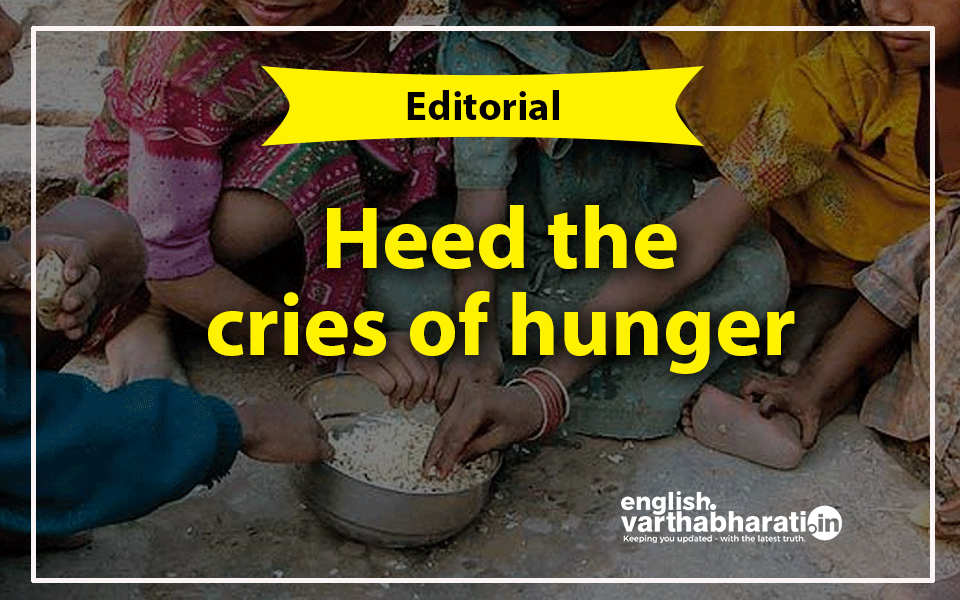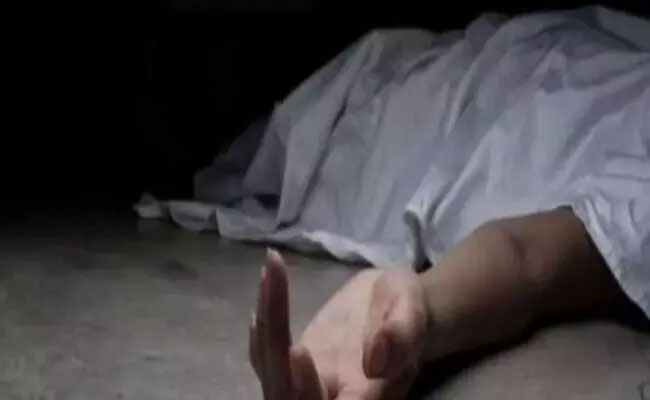In the midst of the Coronavirus pandemic, the world is not as much dismayed at the deaths due to the infection as much as it is at the deaths due to hunger. At one level, It can be accepted that disease is part of nature But the collective inability to address hunger in the world is not a natural problem. Mass hunger is a man-made problem and the series of deaths that are occurring due to hunger is indeed a massacre committed by man. And the number of these murders during the time of Coronavirus has only doubled. Recognizing the importance of efforts to eradicate hunger, this year’s Nobel Peace Prize has been awarded to the World Food Programme (WFP). The WFP has bagged the prestigious award for its mammoth efforts towards hunger eradication from Yemen to North Korea after the Coronavirus pandemic pushed crores of people towards hunger. This has in in a way reiterated the role of developing countries such as India in fighting hunger and has sent out a message that the focus should be on removing peoples’ hunger instead of wasting money on religion or erecting statues.
In India, the Public Distribution System (PDS) has been taking a back seat for nearly a decade due to various factors. The main reason for this is that the measures of poverty are being changed in order to show a fall in the overall number of the officially recognized poor. Changing the method of estimating poverty essentially meant reducing the number of the poor by excluding those who were identified as poor and keeping them below poverty line. With this, substantial funds to the PDS was saved. But, there is a direct link between the alarming levels of malnutrition and the failure of the PDS. A recent study has revealed the shocking reality that the families that have the maximum need for free food grains have been kept out of the PDS. A report of this study was published last week in Nutritional Journal, a magazine published by BioMed Central.
For this particular study, data from the National Family Health Survey-4 was used. The study has exposed the inefficiency in the distribution of BPL cards that has deprived the poor of benefitting from the re-distributional programmes such as PDS. This report has identified about 15 per cent of families as ‘real poor’ (economically backward and those who have the BPL card or green card.) About 16 per cent have been identified as economically poor but without BPL cards and about 23 per cent as not being economically poor but who possess welfare cards. About 46 per cent of those who have welfare cards have been identified as not being economically poor.
Of the surveyed families, about 57 per cent of those who either use or do not use PDS have at least one child with stunted growth. Of those who are not identified as poor by the government, about 36 per cent of the families have at least one child who has stunted growth. In Uttar Pradesh, about 27 per cent families are deprived of basic needs and do not have PDS or BPL cards. In Bihar, this number is about 15 per cent and in Jharkhand it is 21 per cent. Similarly, in Karnataka, Telangana, and Andhra Pradesh, it has been found that families that are not deemed poor have BPL cards.
The study has also shown that problems such as stunted growth and low body weight can be found in children who have been kept out of PDS and subsidy systems. Also, it has revealed that in many states the number of children with stunted growth and who are out of the gamut of the PDS and subsidized food system is more than the actual number of poor families. It has exposed the fact that families that have the maximum need for welfare measures have not been included in these programmes. The study has recommended that including poor families as beneficiaries of welfare programmes should be prioritized and welfare programmes should include provisions for the availability and distribution of food. It has also asserted the need to improve the quality of nutritious food provided under the PDS and expand the food inventory to help reduce malnutrition.
At present, the Coronavirus has reduced the gap between the poorest of the poor, the poor, and middle-class people. In a way, those who were called as ‘middle-class’ have been demoted as the ‘poor.’ But, the government records do not identify them as poor and at the same time, the number of the poor without the card has increased. It is important then that not only the poor below the poverty line but also the poor not identified as poor should be effectively included in the PDS. The government should accept that winning over the Coronavirus also means winning the war against hunger.
Let the Truth be known. If you read VB and like VB, please be a VB Supporter and Help us deliver the Truth to one and all.
Thane (PTI): Two minor girls were rescued after a prostitution racket was busted in Navi Mumbai, a police official said on Monday.
On a tip off about one Harish running a flesh trade racket, the Navi Mumbai Crime Branch started a probe on February 20, the official said.
"A decoy customer was sent to verify the information, following which a trap was laid in front of a hotel in Sector 11. The Anti Human Trafficking Cell nabbed Harish Vikas Chhari, a resident of Koparkhairane, while his associate Raj Singh is on the run. Two minor girls were rescued," the CBD Belapur police station official said.
A case has been registered under Bharatiya Nyaya Sanhita, Immoral Traffic (Prevention) Act, and Protection of Children from Sexual Offences (POCSO) Act, the official added.





